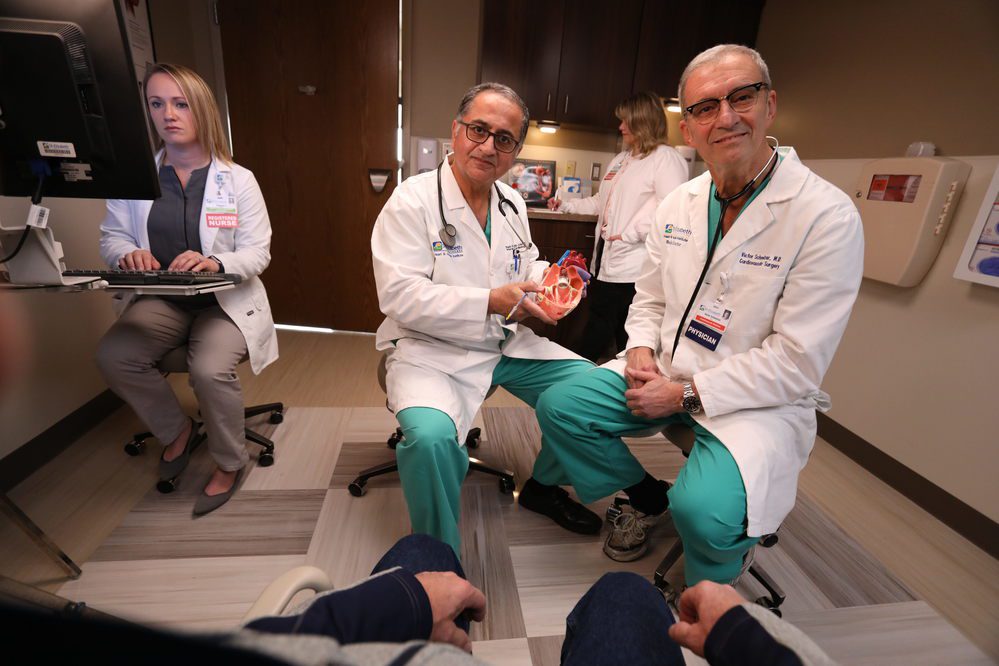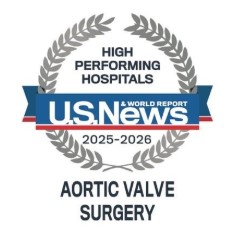Optimal Care for Heart Valve Disease
Until recently, people with aortic stenosis or mitral valve disease — conditions that affect the valves in the heart — had a single option for treatment: open-heart surgery.
At the Florence Wormald Heart & Vascular Institute at St. Elizabeth, we offer more treatment options, including minimally invasive transcatheter aortic valve replacement (TAVR), minimally invasive mitral valve repair and replacement, and minimally invasive transcatheter mitral valve repair (TEER).
A Team Approach for Heart Valve Treatment
The Structural Heart and Valve Center brings the expertise of cardiologists, cardiothoracic surgeons, interventional radiologists (imaging specialists) and anesthesiologists to plan the best treatment for your condition. Surgeons and cardiologists review the results of your diagnostic exams to determine which therapies offer you the best results.

Contact Us
Structural Heart Main Line: (859) 301-8287
In addition, your team may include a:
Advanced Treatments for Heart Valve Disease
The Structural Heart and Valve Center provides expert treatment for valve disease. Cardiologists and surgeons work together to determine the best treatment — whether it’s open heart surgery or a minimally invasive procedure.
We offer minimally invasive procedures such as:
If your condition can’t be treated with a minimally invasive procedure, our surgeons can perform traditional open-heart surgery to repair or replace aortic and mitral valves. Our specialists will discuss which treatments can offer you the best results. We’ll design a treatment plan that meets your needs.

U.S News & World Report High Performing for Heart Procedures
St. Elizabeth Edgewood is ranked as the #1 Hospital in Kentucky by U.S. News & World Report in 2025, with Abdominal Aortic Aneurysm Repair, Aortic Valve Surgery, Heart Arrhythmia, Heart Attack, Heart Bypass Surgery, Heart Failure and Pacemaker Implantation ranked as High Performing to reflect our commitment to clinical excellence.
Explore What’s Possible in Heart Care
Every heart is different – and so is every journey. Whether you’re seeking answers, managing a condition, or considering surgery, our specialists offer care that’s tailored to you. Learn more about our services and find the team that’s right for your next step.


